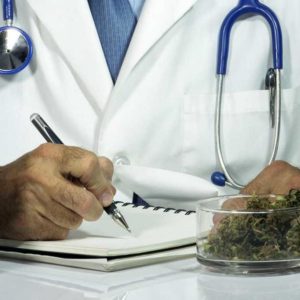
Ron DeSantis and Nikki Fried Spark A New Era For Medical Marijuana Florida!
In 2016, over 71% of voters were in favor of amendment for the legalization of medical marijuana. However, nothing tangible was done since then. With bureaucratic delays and other legal challenges, the implementation of the amendment was ground to a near halt. Critics had since blamed the previous administration of Gov. Rick Scott for intentional foot-dragging.
But now!
Things are looking pretty good for marijuana activists in Florida as the governor Ron DeSantis vows to end feet dragging on medical marijuana. DeSantis wants to ensure that the amendment is implemented in such a way that those who voted for it will feel that they actually got what they voted for.
And he has the support of Florida’s top medical marijuana lobbyist.
With her new office as Florida’s Agriculture Commissioner and top Democrat, Nikki Fried is set to hire a befitting candidate for her newly-created “Director of Cannabis” position. She says the director of cannabis will be named in the coming weeks.
Under Florida’s Department of Agriculture and Consumer Services, the cannabis director will supervise all parts of the medical marijuana program that the department oversees currently. This director will be saddled with the responsibility of overseeing the flourishing agricultural hemp industries and medical marijuana edibles locally.
Speaking in an interview, Nikki Fried hopes to hire someone who shares her opinions and views regarding medical marijuana, something that worked like fireworks during her campaign.
She also promises to give patients in Florida more access to medical marijuana. She pledges to use her new office to make Florida a leading producer of hemp in the country, seeing that the hemp industry has the potential of raking in revenue for the state to the tune of millions of dollars says on tampa marijuana doctor.
Now, that sounds exciting for us—you and us at All Natural Medical Solutions. You’ll enjoy the best medical marijuana recommendations from us and get your Florida Marijuana Doctors recommendation and ID cards easier than ever!
Medical Marijuana Information For Doctors and Card Holders in Tampa Florida
The State of Florida including Tampa has legalized medical marijuana. The American public largely supports the legalization of medical marijuana. At large percentage of the public believes the drug should be legal for medical uses, and recreational pot usage is less controversial than ever, with at least 60 plus percent of Americans in support. Even though some medical benefits of smoking pot may be overstated by doctors and advocates of marijuana legalization, recent research has demonstrated that there are legitimate medical uses for marijuana and strong reasons to continue studying the drug’s medicinal uses.
Even the NIH’s National Institute on Drug Abuse lists medical uses for cannabis. There are at least two active chemicals in marijuana that researchers think have medicinal applications. Those are cannabidiol (CBD) which seems to impact the brain without a high— and tetrahydrocannabinol (THC) which has pain relieving properties and is largely responsible for the high. But scientists say that limitations on marijuana research mean we still have big questions about its medicinal properties. In addition to CBD and THC, there are another 400 or so chemical compounds, more than 60 of which are cannabinoids. Many of these could have medical uses. But without more research, we won’t know how to best make use of those compounds. More research would also shed light on the risks of marijuana. Even if there are legitimate uses for medicinal marijuana, that doesn’t mean all use is harmless. Some research indicates that chronic, heavy users may have impaired memory, learning, and processing speed, especially if they started regularly using marijuana before age 16 or 17.
That same report said there’s equally strong evidence provided by Marijuana Doctors in Florida can help with muscle spasms related to multiple sclerosis. Other types of muscle spasms respond to marijuana as well. People use medical marijuana to treat diaphragm spasms that are not treatable by other, prescribed medications. There’s a fair amount of evidence that marijuana does no harm to the lungs, unless you also smoke tobacco. One study published in Journal of the American Medical Association found that not only does marijuana not impair lung function, it may even increase lung capacity. Researchers looking for risk factors of heart disease tested the lung function of 5,115 young adults over the course of 20 years. All Natural Medical Solutions say Tobacco smokers lost lung function over time, but pot users actually showed an increase in lung capacity. It’s possible that the increased lung capacity may be due to taking a deep breaths while inhaling the drug and not from a therapeutic chemical in the drug.

During the research for his documentary “Weed,” Sanjay Gupta interviewed the Figi family, who treated their 5-year-old daughter using a medical marijuana strain high in cannabidiol and low in THC. The Figi family’s daughter, Charlotte, has Dravet Syndrome, which causes seizures and severe developmental delays. According to the film, the drug decreased her seizures from 300 a week to just one every seven days. Forty other children in the state were using the same strain of marijuana to treat their seizures when the film was made and it seemed to be working. The doctors who recommended this treatment including some marijuana doctors in Tampa said the cannabidiol in the plant interacts with brain cells to quiet the excessive activity in the brain that causes these seizures. Gupta notes, however, that a hospital that specializes in the disorder, the American Academy of Pediatrics, and the Drug Enforcement agency don’t endorse marijuana as a treatment for Dravet or other seizure disorders. CBD may help prevent cancer from spreading, researchers in California said in mid 2000’s. Other very preliminary studies on aggressive brain tumors in mice or cell cultures have shown that THC and CBD can slow or shrink tumors at the right dose, which is a strong reason to do more research. One 2014 study found that marijuana can significantly slow the growth of the type of brain tumor associated with 80% of malignant brain cancer in people. Still, these findings in cell cultures and animals don’t necessarily mean the effect will translate to people — far more investigation is needed. Researchers know that many cannabis users consume marijuana to relax, but also that many people say smoking too much can cause anxiety. So scientists conducted a study to find the “hybrid” zone: the right amount of marijuana to calm people.

All Natural Health – Marijuana Doctors – Medical Marijuana Clinic in the Tampa Greater Carrollwood, Florida Area – 14502 N Dale Mabry Hwy Suite 200, Tampa, FL 33618
Hours: Monday – Friday 9:00am – 7:00om and Saturday 11:00am – 4:00pm / Closed Sunday
Phone: (800) 250-6737

